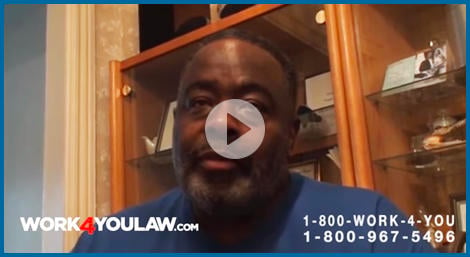Smoke Inhalation Injuries
Smoke inhalation is the number one cause of death related to structural fires. According to the National Fire Protection Association (NFPA), 50 to 80 percent of fire-related fatalities are caused by smoke inhalation injuries rather than burn injuries. Smoke inhalation occurs when products of combustion during a fire are breathed in. The smoke that emanates from a structure that is on fire is a mixture of heated particles and gases. When the occupants of a building inhale smoke containing harmful gases, they may become incapacitated and unable to leave the location or even call for help.
Breathing in toxic fumes after a fire also causes fatal injuries for fire victims. If you or a loved one has suffered smoke inhalation injuries or if you have lost a loved one who suffered smoke inhalation in a fire, it is important that you contact an experienced New York personal injury lawyer who can provide you with more information about pursuing your legal rights.
Why is Smoke Inhalation Dangerous?
Smoke inhalation is known to cause serious damage to various organs of the body as it cuts off the oxygen supply to them. It may cause chemical irritation, chemical asphyxiation or a combination of these. A fire may result in the formation of chemicals that cause direct injury when they come into contact with a person’s skin and mucous membranes. These substances may disrupt the normal lining of the respiratory tract. This disruption can potentially result in swelling, airway collapse and trouble breathing. Examples of chemical irritants found in smoke include ammonia, chlorine, sulfur dioxide and hydrogen chloride.
A fire can also produce compounds that may interfere with the body’s oxygen use at a cellular level. The body’s cells may become damaged or even die if these chemical compounds inhibit the delivery or use of oxygen. Carbon monoxide is one of the gases often released during a structural fire. It is highly toxic and the leading cause of death for smoke inhalation victims.
There are several things that happen when you are surrounded by heat and smoke, which usually is the case in a structural fire. First, the hot air from a fire or explosion can cause burn damage to the nostrils or upper airways. Far more damaging than the hot air is the smoke because it cuts off oxygen to the brain and the body’s blood supply. So, it often causes brain damage or poisoning. Also, inhalation of toxic chemicals can cause oxygen deprivation as well, which leads to brain injury or even death.
Symptoms of Smoke Inhalation
There are a number of signs and symptoms, which show that a person has been affected by smoke inhalation. Some of the symptoms we commonly see include cough, difficulty breathing, headache, hoarseness and changes in mental status. The nature and extent of smoke inhalation injuries can often be determined by symptoms such as changes in skin color or the presence of soot in airway passages.
Here are some of the most common symptoms of smoke inhalation:
- Cough: This is the first symptom you might experience after smoke inhalation because the mucous membranes of the respiratory tract get irritated. Increased mucus production causes coughing.
- Breathing problems: Anyone who has inhaled smoke is likely to experience breathing difficulty because of direct injury to the respiratory tract leading to decreased oxygen delivery to the blood or because the body’s cells are unable to use oxygen.
- Hoarseness: This may be a sign that fluids are collecting in the upper airway causing a blockage. The victim’s upper airways or vocal cords may also become affected by the smoke causing him or her to become hoarse.
- Eye irritation: Eyes may become irritated or red due to the smoke and there may even be burns on the corneas of the eyes.
- Skin: The skin’s color may range from pale to bluish or even red.
- Changes in mental status: The presence of chemicals and low levels of oxygen can cause symptoms such as dizziness, confusion, seizures or even lack of consciousness and fainting.
- Other symptoms: In some cases, the victim may not have respiratory problems, but may have symptoms such as headache, nausea, confusion and vomiting from inhaling harmful gases such as carbon monoxide.
The Laws with Regard to Smoke Detectors
New York City requires property owners and/or property managers to install and maintain smoke detectors as well as carbon monoxide detectors. Not only are homeowners required to install smoke detectors and carbon monoxide detectors, but the law also mandates that they maintain these detectors and ensure that they are in good working condition at all times. The law also requires property owners and/or property managers in New York City to replace a detector that “has been stolen, removed, missing or rendered inoperable during occupancy.”
In December 2015, Governor Andrew Cuomo signed a bill preventing the sale of smoke detectors powered by removable, replaceable batteries. Instead retailers will be able to sell only smoke detectors with a power source that is not removable and lasts at least for 10 years. With this new law, New York has become the ninth state requiring 10-year smoke alarms.
Premises Liability Issues
When a property owner and/or property manager fails to install smoke or carbon monoxide alarms and the dwelling’s occupants are injured or killed as a result, the property owner and/or property manager can be held liable for the negligence with what is known as a premises liability claim. When a property owner and/or property manager violates a law or a regulation, he or she may be found negligent and can be held financially responsible for the injuries, damages and losses caused. In order to prevail in a premises liability claim, plaintiffs must prove that the property owner and/or property manager had a duty to provide them with a safe living environment and that the failure to do so resulted in their injuries. In cases involving smoke detectors or carbon monoxide alarms, the law clearly states that property owners and/or property managers must install and maintain these safety systems to protect their tenants and visitors.
Here are three crucial elements for plaintiffs in order to be successful with their premises liability claim. They must prove that:
- The property owner and/or property manager had a duty of care or a legal responsibility to maintain the property in a safe manner, take basic precautions to eliminate or minimize hazards or otherwise provide a standard of reasonable care. For example, your landlord has a duty to install and maintain fire alarms, smoke detectors and carbon monoxide detectors to protect you in case of a fire.
- The property owner and/or property manager breached that duty or responsibility to provide a safe environment for tenants.
- This breach directly caused the plaintiffs’ injuries. For example, regardless of what caused the fire and the resulting smoke inhalation injuries, the landlord can be held liable if the injuries are suffered because of the absence of fire alarms or working smoke detectors.
- Injuries and damages were suffered as a result of this breach of duty on the part of the landlord or property owner and/or property manager.
What is Your Claim Worth?
If you have suffered smoke inhalation injuries, you may be wondering what your injury claim will be worth. The answer always comes down to the nature and extent of the damages you have sustained. What have your injuries cost you financially, physically and emotionally? That is the question to ask when it comes to determining the value of your injury claim. In a personal injury case, money damages are paid to the injured person or the plaintiff by the person or entity found liable (legally responsible) for the injury-causing event. Such a case may go to a jury trial or the parties involved may come to a settlement out of court.
Here are some of the damages that often determine the value or worth of a personal injury claim:
- Medical treatment: Anyone who has suffered burn or smoke inhalation injuries is likely to need intensive treatment and rehabilitative care. Medical expenses including cost of surgery, medication, medical equipment and rehabilitation are a big part of compensatory damages in such cases. Often, plaintiffs will be awarded damages for cost of future treatment as well. This is particularly true in cases where patients have suffered catastrophic, disabling or disfiguring injuries. Individuals may require complex and costly surgeries and treatments in order to regain their quality of life. Even then, many victims are unable to fully recover and return to the life they had prior to their injury.
- Lost income: You may also be entitled to receive compensation for the impact the accident and injuries had on your wages and your capacity to earn a livelihood. If your injuries have proved disabling, you may seek compensation for lost wages and loss of earning capacity, or in other words, income you might have earned in the future, but cannot because of your injuries and disabilities.
- Past and future pain and suffering: You can seek compensation for the physical pain and serious discomfort you have had to endure during the incident and in its aftermath. Smoke inhalation injuries can be particularly painful. The recovery process can be exceedingly slow.
- Mental anguish: The psychological impact of a traumatic event can never be minimized. Patients may suffer from fear, anxiety and even insomnia. Others may suffer from depression as a result of being unable to work, care for family members or just from losing the life they once had.
- Loss of enjoyment: When injuries caused by a fire or any accident keep victims from enjoying their everyday pursuits and hobbies, they may be entitled to “loss of enjoyment” damages.
- Loss of consortium: This refers to the impact the injuries have on the plaintiff’s relationship with his or her spouse or partner. The loss of companionship or the ability to have a sexual relationship can cause significant issues for couples.
- Punitive damages: In some cases, where the act of negligence is particularly egregious, a court or jury may decide to award plaintiffs punitive damages to penalize the defendant and to discourage others from exhibiting such negligence in the future.
Steps You Can Take
If you have suffered smoke inhalation injuries in a fire, there are a number of steps you can take to ensure that your legal rights and best interests are protected. First, make sure you get to safety and get the medical attention you need right away. You may have respiratory issues and burn injuries that require emergency care. If you are not able to remain at the scene and get details and relevant information, have a friend of family member gather critical evidence including police and fire department reports, eyewitness statements, photographs from the scene, etc. Preserve all receipts and paperwork that document your injuries, the treatment you received and the expenses you incurred. Maintain a personal journal detailing your condition, the pain you experienced and how your life changed after the accident. Contact an experienced New York City personal injury lawyer who will fight for your rights and help ensure that you are fairly and fully compensated for all your losses.
Contacting an Experienced Lawyer
If you or a loved one has suffered smoke inhalation injuries or if you have lost a loved one in a fire, the experienced New York personal injury attorneys at the Law Offices of Kenneth A. Wilhelm can help you better understand your legal rights and options. Our firm recovered $985,000 out of a $1,000,000 policy in a fire accident case where injuries were sustained because the homeowner did not have smoke detectors installed in an apartment.
Please contact us TOLL FREE 24 hours a day, 7 days a week at 1-800-WORK-4-YOU (1-800-967-5496). WE CAN EVEN COME TO YOU. There is no attorneys’ fee unless we recover money for you. We can also help with personal injury cases in New Jersey, Connecticut, Pennsylvania, or Florida. If you have been seriously injured in any of the 50 U.S. states, please call us and we will try to help you with your case.
Other TOLL FREE phone numbers for us are:
1-800-RADIO-LAW, 1-888-WYPADEK, OR 1-800-LAS-LEYES
Please visit us at: www.WORK4YOULAW.com










